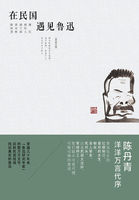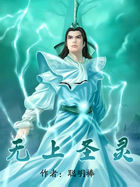Q. Adams. and opened to him the brilliant diplomatic career that ended in the White House. Even in his own effaced existence he had reasons, not altogether trivial, for gratitude to the Czar Alexander II, whose firm neutrality had saved him some terribly anxious days and nights in 1862; while he had seen enough of Russia to sympathize warmly with Prince Khilkoff's railways and de Witte's industries. The last and highest triumph of history would, to his mind, be the bringing of Russia into the Atlantic combine, and the just and fair allotment of the whole world among the regulated activities of the universe. At the rate of unification since 1840, this end should be possible within another sixty years; and, in foresight of that point, Adams could already finish -- provisionally -- his chart of international unity; but, for the moment, the gravest doubts and ignorance covered the whole field. No one -- Czar or diplomat, Kaiser or Mikado -- seemed to know anything. Through individual Russians one could always see with ease, for their diplomacy never suggested depth; and perhaps Hay protected Cassini for the very reason that Cassini could not disguise an emotion, and never failed to betray that, in setting the enormous bulk of Russian inertia to roll over China, he regretted infinitely that he should have to roll it over Hay too. He would almost rather have rolled it over de Witte and Lamsdorf. His political philosophy, like that of all Russians, seemed fixed in the single idea that Russia must fatally roll -- must, by her irresistible inertia, crush whatever stood in her way.
For Hay and his pooling policy, inherited from McKinley, the fatalism of Russian inertia meant the failure of American intensity. When Russia rolled over a neighboring people, she absorbed their energies in her own movement of custom and race which neither Czar nor peasant could convert, or wished to convert, into any Western equivalent. In 1903 Hay saw Russia knocking away the last blocks that held back the launch of this huge mass into the China Sea. The vast force of inertia known as China was to be united with the huge bulk of Russia in a single mass which no amount of new force could henceforward deflect. Had the Russian Government, with the sharpest sense of enlightenment, employed scores of de Wittes and Khilkoffs, and borrowed all the resources of Europe, it could not have lifted such a weight; and had no idea of trying.
These were the positions charted on the map of political unity by an insect in Washington in the spring of 1903; and they seemed to him fixed.
Russia held Europe and America in her grasp, and Cassini held Hay in his.
The Siberian Railway offered checkmate to all possible opposition. Japan must make the best terms she could; England must go on receding; America and Germany would look on at the avalanche. The wall of Russian inertia that barred Europe across the Baltic, would bar America across the Pacific; and Hay's policy of the open door would infallibly fail.
Thus the game seemed lost, in spite of the Kaiser's brilliant stroke, and the movement of Russia eastward must drag Germany after it by its mere mass. To the humble student, the loss of Hay's game affected only Hay; for himself, the game -- not the stakes -- was the chief interest; and though want of habit made him object to read his newspapers blackened -- since he liked to blacken them himself -- he was in any case condemned to pass but a short space of time either in Siberia or in Paris, and could balance his endless columns of calculation equally in either place. The figures, not the facts, concerned his chart, and he mused deeply over his next equation. The Atlantic would have to deal with a vast continental mass of inert motion, like a glacier, which moved, and consciously moved, by mechanical gravitation alone. Russia saw herself so, and so must an American see her; he had no more to do than measure, if he could, the mass.
Was volume or intensity the stronger? What and where was the vis nova that could hold its own before this prodigious ice-cap of vis inertiae ?
What was movement of inertia, and what its laws?
Naturally a student knew nothing about mechanical laws, but he took for granted that he could learn, and went to his books to ask. He found that the force of inertia had troubled wiser men than he. The dictionary said that inertia was a property of matter, by which matter tends, when at rest, to remain so, and, when in motion, to move on in a straight line.
Finding that his mind refused to imagine itself at rest or in a straight line, he was forced, as usual, to let it imagine something else; and since the question concerned the mind, and not matter, he decided from personal experience that his mind was never at rest, but moved -- when normal -- about something it called a motive, and never moved without motives to move it. So long as these motives were habitual, and their attraction regular, the consequent result might, for convenience, be called movement of inertia, to distinguish it from movement caused by newer or higher attraction; but the greater the bulk to move, the greater must be the force to accelerate or deflect it.
This seemed simple as running water; but simplicity is the most deceitful mistress that ever betrayed man. For years the student and the professor had gone on complaining that minds were unequally inert. The inequalities amounted to contrasts. One class of minds responded only to habit; another only to novelty. Race classified thought. Class-lists classified mind.
No two men thought alike, and no woman thought like a man.















